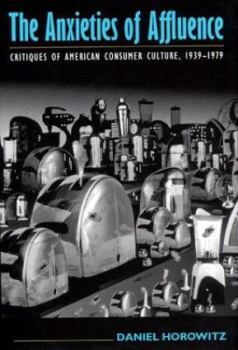Anxieties of Affluence
Select Format
Select Condition 
Book Overview
This book charts the reactions of prominent American writers to the unprecedented prosperity of the decades following World War II. It begins with an examination of Lewis Mumford's wartime call for... This description may be from another edition of this product.
Format:Hardcover
Language:English
ISBN:1558494324
ISBN13:9781558494329
Release Date:February 2004
Publisher:University of Massachusetts Press
Length:339 Pages
Weight:1.60 lbs.
Dimensions:1.2" x 6.1" x 9.4"
Customer Reviews
1 rating
Complaints about American Consumerism
Published by Thriftbooks.com User , 19 years ago
In the United States there is no question that we live in a culture of consumption. We change cars long before they are work out, and our thrift shops are filled with clothes showing almost no wear. And we are overweight. The complaints about American consumer habits have grown just about as fast. This book examines that critism from the end of the depression until 1979. The book has five broad themes: . the persistence of highly charged, moralistic attitudes to consumer culture . how certain writers embraceed psychology as an explanation for and a solution to social problems . the factors that determined the power of books to set the terms of public discussion . the role of intellectuals in shaping social movements, public conversations and policy considerations . the hegemony of the of the cold war consentsus was replaced by new events and ideas challenged its legitimacy. The book ends in 1979 with the energy crisis and the thought that the 'good life' was over. After that came the longest period of growth in our history, various recessions, booms and bust on Wall Street, the dot.coms, SUVs and a lot more critism.





